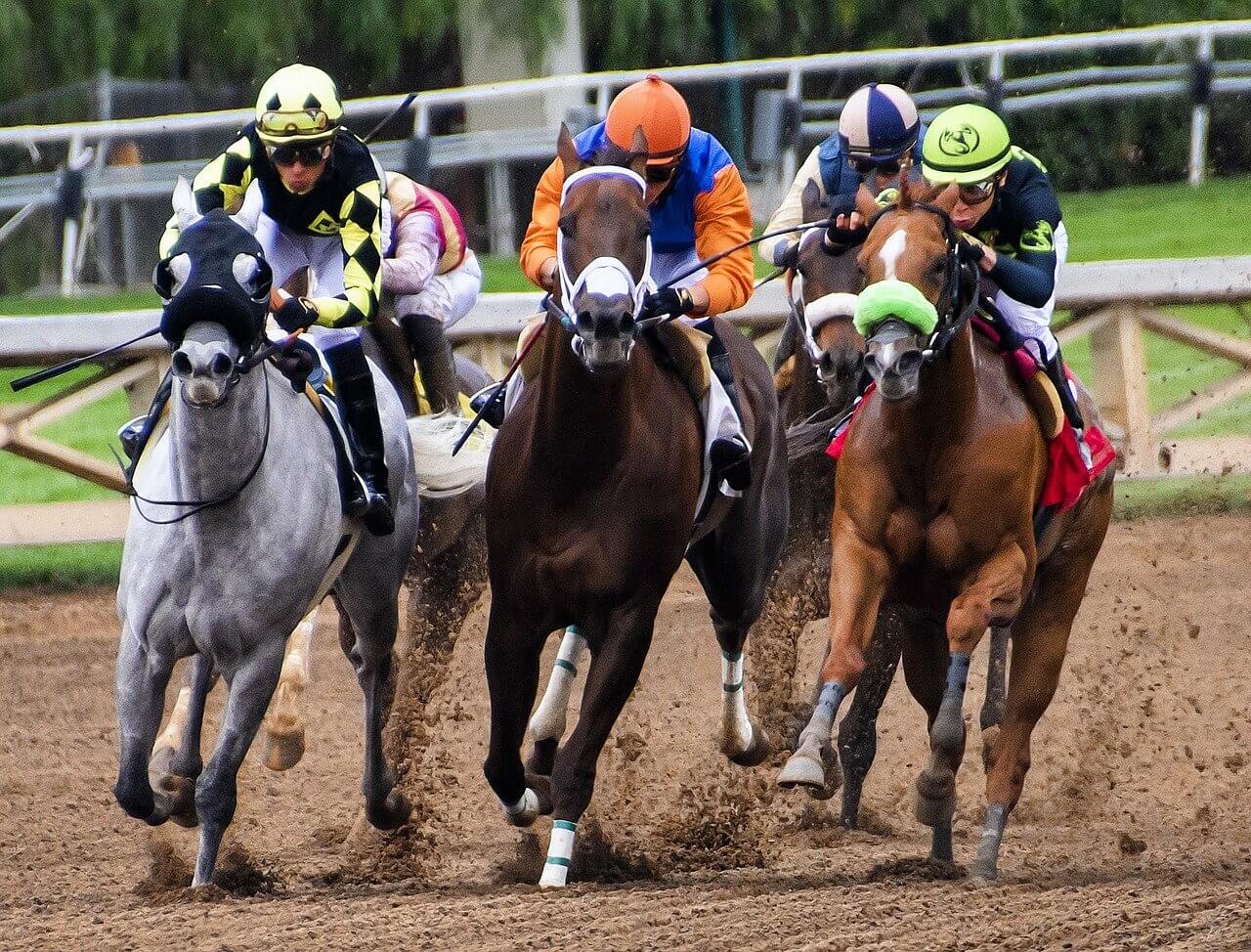


PETA has been pressing the horse racing industry to make lifesaving changes for a long time, from taking a seat in the boardroom to proposing 11 simple rules for racetracks to adopt. If it were up to us, intelligent, sensitive horses wouldn’t ever be treated cruelly—but since horses were dropping dead left and right, we had to help make some changes to the an industry in which trainers whip horses, force them to run while injured, and drug them.
Now, following the scandals and deaths of 2019 and PETA’s work to stop the carnage, we have seen major progress for horses in the last year:
Breaking! Golden Gate Fields in the San Francisco Bay Area, where at least 23 horses have died since 2022, will close at the end of this year and consolidate with Santa Anita Park outside Los Angeles. As of 2024, there will be no horse races in Northern California (other than short seasonal races at fair grounds) and no Thoroughbred tracks.
This development follows stronger regulations and the track owner’s work to prevent injured, exploited horses from running—both of which PETA has long advocated and worked for (see below). As California tracks have found, if sore or injured horses aren’t forced to race, there will be fewer races, fewer horses in each race, fewer race days—and fewer fatalities.
This was a smart business decision by the track owners. Dozens of horse deaths is never a good business plan.
For years, PETA has advocated for an end to medications that mask injury and enable trainers to run injured horses, increasing the chance that they’ll break bones and die during racing and training. We exposed the industry’s misuse of medication with the 2014 release of our investigation into trainer Steve Asmussen. In response, the racing industry introduced a federal bill to curb drugging, and this fall, the U.S. House of Representatives passed the Horseracing Integrity and Safety Act, with regulations such as medication control, increased drug testing, and racetrack safety standards—and it has a good chance of passing in the Senate this year.
After more than 30 horses died last year at Santa Anita Park in Southern California, PETA seized the moment to help these animals. Our request prompted the Los Angeles County district attorney to investigate, and we worked with California track owners and the California Horse Racing Board to get stricter regulations passed, including a ban on more than a dozen drugs, medical transparency for horses who are shipped to the state, and more.
As a result of the changes put in place at Santa Anita, it concluded its 16-day 2020 autumn meet as the safest racetrack in the nation, with no horse racing or training fatalities. Other states, including Kentucky, are moving in the same direction.
The most controversial drug, Lasix, a diuretic, is used in horse racing supposedly to prevent pulmonary bleeding during intense exercise. However, it is debilitating, masks other drugs, and is illegal on race day in nearly every country in the world.
Now, after years of campaigning …
Following Mongolian Groom’s fatal breakdown in 2019—an instance that is all too common in horse racing—PETA turned up the heat on the Breeders’ Cup, urging it to ban all drugs two weeks before a race. Although there’s a long way to go before all PETA’s requests are met, this year’s Breeders’ Cup Juvenile Race at least helped our cause by prohibiting the use of Lasix on race day.
In a major step forward, California, Kentucky, and Maryland adopted statewide plans to phase out Lasix completely, starting with a ban on using it in juvenile races.
We have urged racetracks to ban whipping completely over the years—as it’s cruel and painful and research shows that it doesn’t make horses run faster. There’s also no evidence that whipping makes racing safer. As a result, California and Kentucky have severely restricted whipping and New Jersey has become the first U.S. state to ban whipping to make horses go faster. Under the new rules passed by the New Jersey Racing Commission, riders who whip horses to go faster can face fines and suspension.
The many victories in the horse racing industry have helped save countless lives, but PETA is not done. We’re still fervently working to get all our rules adopted by every racetrack in the U.S. They include replacing dangerous dirt tracks with high-quality synthetic surfaces, installing CT scan equipment to detect bone injuries quickly, eliminating speed trials at juvenile racehorse auctions, and conducting random drug tests.
Horses experience a complex range of emotions, just as we do: They get lonely without companionship, they can mourn when others die, and they form meaningful attachments to others. They have their own intellectual capabilities and interests that do not include being whipped or forced to run to their own grave.